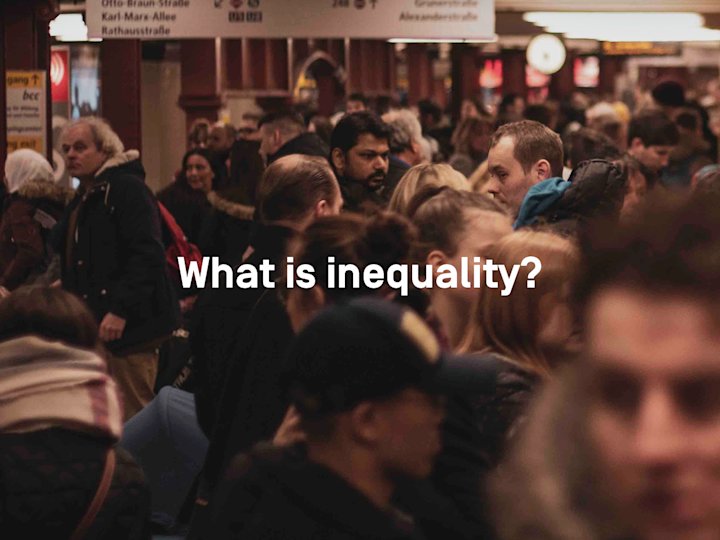We shouldn’t talk about money? Is that so? In Germany at least, talking about how much you earn or how wealthy you are is still often regarded as a taboo. This is why so many of us put ourselves in the wrong category and believe that only other people are rich. Or are we, as citizens of Germany, automatically classed as being affluent? Depending on who or where you ask, the answers are bound to be very different.
This is because our own personal financial status is classified in relation to other social strata or countries. We know that there is a marked social inequality worldwide (and also here in Germany). But how can we calculate an unfair distribution of income and wealth? And where would you put yourself on the poor-rich scale?
Social inequality: what is it?
The term social inequality is often used in the context of unfair wealth distribution, usually when we are talking about “the gap between rich and poor”. But social inequality covers a lot more than that: the term describes a situation in which a group of people have fewer resources than others. These resources can be of a financial nature, i.e. such as income and wealth, or they are intangible and refer to things like education or rights.
In the rest of this article, we will be focusing on financial inequality.
The Gini coefficient: Measuring the unfair distribution of wealth
If you want to describe the distribution of income and wealth, within a country, for example, the Gini coefficient can be used. It was developed by Italian statistician Corrado Gini. There is a relatively complex formula behind it, which results in a value between 0 and 1. To help us visualize it better, the value can also be expressed as a percentage (the Gini index), by multiplying the coefficient by 100. The Gini coefficient (or Gini index) indicates the degree of inequality of income distribution based on the household real income per capita, e.g. in a country or a region. Basically, a Gini coefficient of 0 would mean that everyone earns the same amount of money (perfect equality). A value of 1, on the other hand, corresponds to perfect inequality, where one person has all the income and everyone else has no income.
So the lower the value is, the more evenly income or wealth are distributed among the population.
Here are a few concrete figures to help you picture it better: with their Gini coefficients under 0.25, Iceland, Slovakia, Slovenia and the Czech Republic had the lowest income inequality in 2020. Bulgaria, on the other hand, has the highest level of income distribution inequality in the EU with a Gini coefficient of 0.4.
Distribution of income and wealth in Germany
The social strata between rich and poor are also drifting further and further apart in Germany. The German federal government’s sixth Poverty and Wealth Report (from May 2021) shows that the percentage of rich people in Germany has continued to rise in recent years. And the number of poor people is also increasing, while the middle-income group continues to shrink. At 0.3, Germany’s Gini coefficient of income distribution inequality is just under the EU average. But the magnitude of inequality becomes even clearer if we take a closer look at the distribution of wealth rather than the distribution of net income: with a Gini coefficient of 0.76, wealth inequality in Germany is higher in Germany than in almost any other European country – only in Austria are the figures similar.
Recent studies from 2018 showed that the wealthiest 1% of the German population owns around 25% of all assets, while the poor half of the population owns just 3%.

* Simplified presentation of the figures "Share of total net assets by decile 2017" (Source)
Rich or poor? Working out your own situation
When are you actually classed as poor by German standards? Is it the people who collect returnable bottles so they can keep the deposits, or those who rely on support from the state? Or does it also affect people who have a full-time job, but are unable to live off their salary? In Germany, poverty is precisely defined: in this country, you are regarded as being poor if you earn less than 60% of the average net wage – which is currently €1,299. But on the other hand, you don’t have to have millions in your bank account to be considered rich in Germany: according to a recent study by the German Institute for Economic Research, singles with a net income of €3,700 are among the top 10%.
Find out more
Women and old-age poverty: We urgently need to start talking about money in relationships How can I save money without cutting all the fun out of my life? With good cost-cutting tips!
Shaping the future: Your path to financial independence
